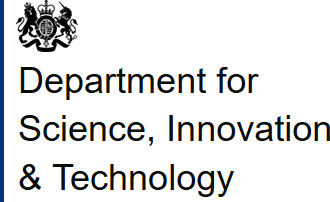PRESS RELEASE : AI to reduce train delays, speed up NHS prescriptions and train construction workers gets £32 million boost [August 2024]
The press release issued by the Department for Science, Innovation and Technology on 7 August 2024.
Government unveils AI projects to improve productivity and public services supported by a share of £32 million.
- Government forges ahead with plans to improve the lives of working people with cutting-edge technology, supporting 98 AI projects with a share of £32 million.
- New technology innovations set to improve efficiency of prescription deliveries, reduce train delays and help ensure the UK has a skilled construction workforce.
- Winning projects span the UK, and funding will benefit over 200 businesses and research organisations.
Companies developing artificial intelligence (AI) to improve safety on construction sites, reduce time spent repairing the railways and cut emissions across supply chains are amongst a number of projects set to receive a share of £32 million in UK Government funding.
Announced today (7 August), almost 100 ground-breaking projects have been awarded financial backing as the government continues its mission to boost productivity and kickstart growth across the economy through AI so everyone is better off.
A total of 98 projects from Southampton to Birmingham and Northern Ireland will receive funding, involving more than 200 businesses and research organisations spanning a range of sectors including public services, driving efficiencies and reducing administrative tasks.
Minister for Digital Government and AI Feryal Clark said:
AI will deliver real change for working people across the UK – not only growing our economy but improving our public services.
That’s why our support for initiatives like this will be so crucial – backing a range of projects which could reduce train delays, give us new ways of maintaining our vital infrastructure, and improve experiences for patients by making it easier to get their prescriptions to them.
We want technology to boost growth and deliver change right across the board, and I’m confident projects like these will help us realise that ambition.
Among the projects is V-Lab Ltd, which has received £165,006 to further develop software powered by AI to help people train in the construction sector. Their system offers immersive, scenario-based virtual simulations of real construction sites to efficiently train workers on risk assessments and safety protocols – helping to ensure the UK has a skilled workforce to deliver the infrastructure the country needs.
As part of the government’s mission to build an NHS which is fit for the future, pharmacies that deliver prescriptions across the country are also set to benefit from this new financial support. A project led by Nottingham-based Anteam will see them working alongside retailers and the NHS to improve the efficiency of their deliveries using AI algorithms. This technology will match the delivery needs of retailers and hospitals to existing delivery journeys, unlocking under-utilised capacity, cutting carbon emissions and delivering a better experience for patients.
In a transformational change to how our railway network is maintained and inspected, Hack Partners will also lead on the development of an entirely autonomous system which can monitor, manage, and identify defects on rail infrastructure across the country. This represents a significant step forward for the British public, boosting the efficiency and safety of our railway network to deliver a better service for rail users.
The funding announced today will specifically support solutions in ‘high growth’ industries, ensuring AI is at the heart of driving forward greater productivity and efficiency across key areas of the economy. Cambridge-based Monumo are part of a team awarded £750,152 to develop improved designs for motors in electric vehicles – their 3D Generative-AI Tool is set to improve sustainability across sectors spanning commercial transportation, flight and power generation.
Work on bringing these new innovations to life is already underway as the winning teams begin to develop their solutions to deliver the cost-cutting, efficiency boosting benefits across the UK.
In the field of logistics, Robok Limited are setting to work on their SeeGul AI tool, which uses AI to monitor efficiency, improve resourcing, and identify bottlenecks which hamper productivity for businesses operating warehouses and storage facilities. Meanwhile, Kelp Technologies are collaborating with fashion retailers Depop and Selfridges to develop real-time pricing and market trend analysis to address the complexity of pricing second hand apparel. The results of the project will save time and money for retailers and play an important role in growing the second-hand clothing market, reducing waste and greenhouse emissions.
Dr Kedar Pandya, UKRI Technology Missions Fund Senior Responsible Owner and Executive Director of Cross-Council Programmes at UKRI’s Engineering and Physical Sciences Research Council said:
These projects will drive AI innovation and economic growth in a diverse range of high-growth industry sectors in all nations of the UK.
They complement other investments made through the UKRI Technology Missions Fund, which are already helping to boost growth and productivity across the UK by harnessing the power of AI and other transformative technologies.
The support announced today places UK AI innovation at the heart of the government’s plans to spark economic growth through a productivity revolution. The winning projects are funded through the UKRI Technology Missions Fund to secure the UK’s global leadership in emerging and future AI technologies. The projects are delivered through the Innovate UK BridgeAI programme, whose additional support also includes access to training and scientific expertise, expert AI advice and guidance, and greater collaboration between businesses and developers.
It follows the King’s Speech where the government committed to ‘take the brakes off Britain’ through a raft of new Bills, including generating sustainable growth by encouraging investment in industry, skills and new technologies.



